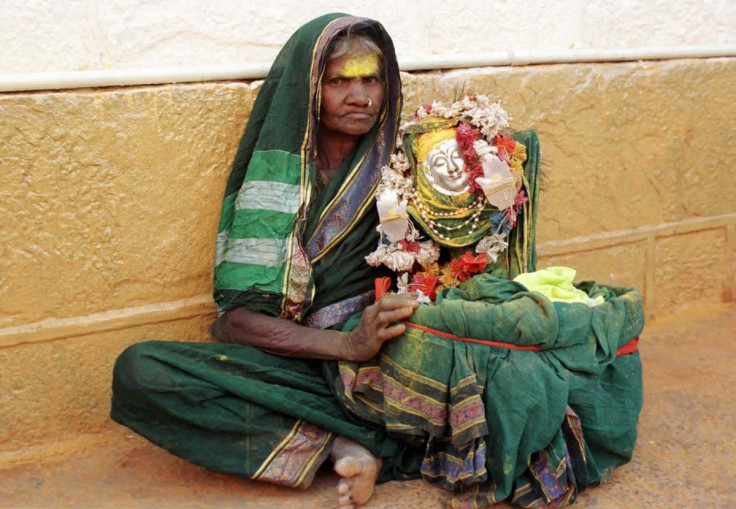Valentine's Day: Hundreds of Girls in India Pulled Back from Ritual Sex Slavery

India's top court has stopped an inhuman practice of "dedicating" young girls to the goddess in a southern Indian temple, a ritual that eventually pushes victims into life-long sex slavery.
The court intervention came even as the fate of hundreds of helpless girls was being decided by the "holy men" who fancied that the children should be ceremonially dedicated to the goddess as "Devadasis", or temple prostitutes, on the full-moon night of 14 February.
Young women are dedicated to the goddess when they are about five years old and are forced to become sex slaves when they reach puberty.
The Devadasi system is a form of public prostitution traditionally authorised by the custodians of religion until it was banned in the country in 1988.
Devadasis "serving" in temples are auctioned to priests, rich men or landowners, and then they become the "property" of the village, often ending up in brothels.
Every year, young girls from poor and Dalit (lower class) families are sexually exploited for the rest of their lives after being forced to "marry" temple deities in a rite commemorated publicly in Davangere district in the state of Karnataka whose capital is Bangalore, the information technology hub of India.
This year, SL Foundation, an NGO, took the matter to the Supreme Court of India and filed a Public Interest Litigation to halt the practice.
"Even though outlawed, the Devadasi system persists, forcing women into a life time of sexual exploitation."
The petition sought suitable guidelines to uproot the practice from the country.
The court expressed shock over the practice and directed Karnataka's chief secretary to take steps to stop the ceremony immediately, according to local news reports.
"It is a very serious matter, you should have come to us earlier," the three-judge bench chided advocates of the SL Foundation.
The court also issued orders to the government in Delhi and the National Commission for Women to take firm action to end the exploitative practice.
Outlawed, but still on
Quoting a report by the NCW, the bench noted that the practice continues in many rural areas of India, and that an estimated 250,000 lower-caste women are living as Devadasis, after being forced into a barbarous life of prostitution in the guise of custom.
"Even though outlawed, the Devadasi system persists, forcing women into a life time of sexual exploitation," the court noted.
Dalit women have traditionally been more vulnerable to being sold as Devadasis by priests and village elders who play the religion card to justify such institutions.
Poverty and religious superstitions are responsible for the continued existence of the practice, according to sociologists.
Many parents abandon their children into ritualised prostitution as they believe that handing over their daughters as Devadasi will bring good luck and prosperity to their family and village.
© Copyright IBTimes 2025. All rights reserved.



















